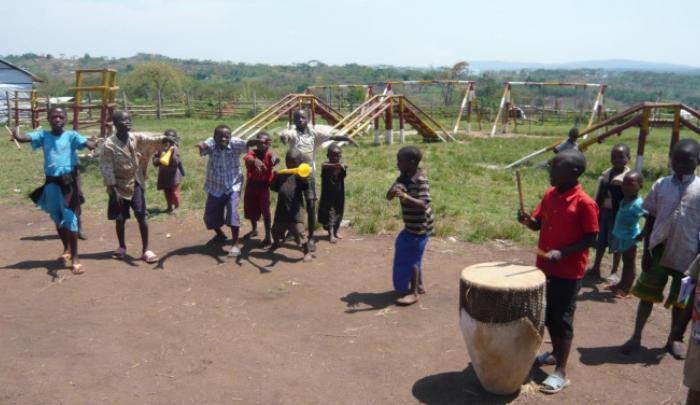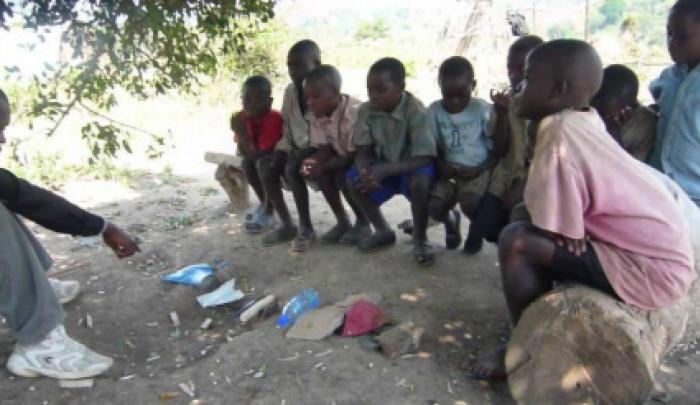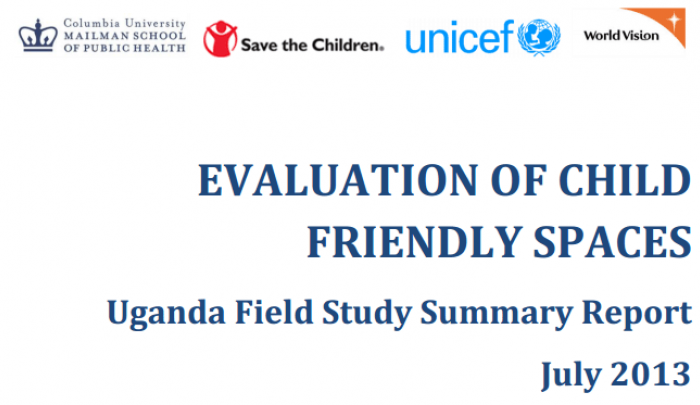Highlights
- Study found substantial improvement of Congolese refugees using Child Friendly Spaces.
- Three out of four children in refugee camp studied voluntarily participated in activities at the Child Friendly Space
- Child Friendly Spaces created to help support and protect children after emergencies



Washington, DC (August 19, 2013) — Spaces built to keep children safe after an emergency or conflict can also help them recover from trauma, new Columbia University and World Vision research launched today shows.
The research, conducted with the support of UNICEF, measured the impact of Child Friendly Spaces (CFS) on Congolese children who have fled fighting and sought refuge in western Uganda. The publication, available here, reveals the spaces were widely used; 73 percent of children in the Rwamwanja camp attended them at some stage.
“We use Child Friendly Spaces (CFS) to support and protect children, give them somewhere to play, and remember what it’s like to be a child again after an emergency,” says World Vision’s Director of Global Humanitarian Operations, Heather MacLeod. “Children are the most vulnerable group during conflict and in the aftermath of a disaster, both emotionally and physically, and we know the long-term impact of their exposure to traumatic events can be huge if not addressed.”
“The spaces provide young people with a safe place to play, participate in activities, learn about their rights to health and protection, and experience healing from any trauma they’ve experienced. They also allow children to return to healthy routines and experience a sense of normalcy again.”
Significantly, the research found children who frequently attended CFS were able to sustain their psychosocial wellbeing, while children who didn’t attend CFS demonstrated a marked deterioration.
The study also showed when children had access to CFS, the positive impact on their parents and caregivers was substantial. Over time, parents said their considerable concerns and stresses about how their children were doing, given everything they’d been through, were reduced. CFS also seems likely to have contributed to children and their families learning how to access vital community support mechanisms – including access to health workers.
“Improved access to community support is critical, as conflict and disasters often mean that children’s rights are forgotten, neglected or violated,” says MacLeod.
The study highlights areas where CFS can be strengthened, including improving outreach to vulnerable boys. The research found boys who didn’t attend CFS, or attended only infrequently, demonstrated a worsening in their wellbeing. It also showed that CFS that met higher quality standards had a greater impact on children’s well-being.
The World Vision and Columbia University CFS research project is a three-year initiative gathering and building evidence and lessons about the practice and implementation of CFS and other psychosocial programming in emergencies.
– END –
- For more information, copies of the report, or interviews with the report’s authors, please contact Holly Frew [email protected]
- The Rwamwanja refugee camp in western Uganda, established in April 2012, is home to over 30,000 people.
- CFS studied were implemented across the Rwamwanja resettlement area in coordinated operations by World Vision Uganda and Save the Children from September 2012. CFS activities included literacy and numeracy, language acquisition, traditional song and dance, art, storytelling, organized sports, and unstructured free play. Additionally, the CFS offered group discussion times where children were able to share experiences with the group or give peer-to-peer support.
About World Vision:
World Vision is a Christian humanitarian organization conducting relief, development, and advocacy activities in its work with children, families, and their communities in nearly 100 countries to help them reach their full potential by tackling the causes of poverty and injustice. World Vision serves all people regardless of religion, race, ethnicity, or gender. For more information, please visit www.WorldVision.org/media-center/ or on Twitter @WorldVisionUSA.